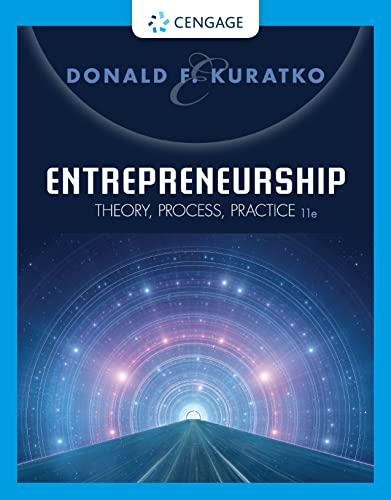Not long ago, the average person was not aware of such delicacies as sushi and kiwi. Today,
Question:
Not long ago, the average person was not aware of such delicacies as sushi and kiwi. Today, they flourish as accepted foods throughout the world. With that in mind, Susan Marring proposes a new enterprise to solve some of the environmental challenges facing our planet. “Insects for Tomorrow” is the name of her new venture idea. She plans to raise insects under hygienic conditions and sell them to restaurants as delicacies. Surprised? Sickened? Worried? While those could be the usual reactions to such a proposal, Susan is undeterred in her effort.
She has done some research and found that people in the vast majority of underdeveloped nations already eat insects. In addition, they are high in protein, B vitamins, and minerals. Insects are plentiful (over a thousand species are edible), are easier to raise than livestock or fish, and produce far less waste. In the Netherlands, companies already raise and sell insects to restaurants, but the idea has not caught on in the United States. Susan says, “Think of the incredible benefits to our environment. Insects consume less water, produce less waste, and it is far more humane to raise them for consumption than livestock.” She is convinced that this concept is viable and has the potential to be highly profitable. With a feasibility study in hand, Susan is prepared to visit socially conscious investors with the goal of raising $300,000 to get the project started. “This venture is triple bottom line thinking at its best,” observes Susan, “I know there will be great acceptance of my idea.”
QUESTIONS
1. Is this a viable sustainable entrepreneurship concept? Why or why not? Be specific.
2. How would this venture be viewed in terms of triple bottom line thinking?
3. What would you recommend to Susan if she came to you for an investment?
Step by Step Answer:

Entrepreneurship Theory Process Practice
ISBN: 9780357033890
11th Edition
Authors: Donald F. Kuratko





